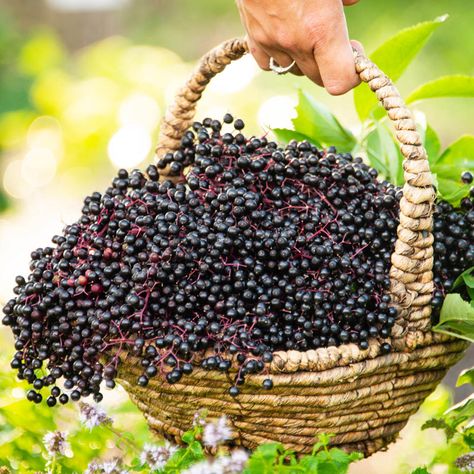Making elderberry juice can be a great way to enjoy the potential health benefits of elderberries, but there are important considerations to ensure safety. Here’s why it might not always be a good idea to make elderberry juice, particularly if proper precautions aren’t taken:
1. Toxic Compounds in Raw Elderberries
Elderberries, especially when raw, contain natural compounds called cyanogenic glycosides. These can release cyanide when consumed, which is toxic to humans. Unripe berries, stems, leaves, and seeds have particularly high levels of these compounds. If the juice isn’t prepared correctly (e.g., thorough cooking), it may contain traces of these harmful substances, leading to nausea, vomiting, or more severe poisoning.
2. Risk of Contamination
Homemade elderberry juice can sometimes harbor bacteria or mold if not handled or stored correctly. This is especially true if the juice is not pasteurized or refrigerated promptly, which could pose a health risk.
3. Potential Allergic Reactions
Some people may be sensitive to elderberries, experiencing mild allergic reactions. Symptoms can include skin irritation, itching, or digestive discomfort. Without prior knowledge of sensitivities, drinking elderberry juice could cause unwanted effects.
4. Overconsumption Concerns
Elderberries are packed with nutrients and antioxidants, but consuming large amounts of elderberry juice can cause digestive upset, such as diarrhea or stomach cramps. Moderation is key when incorporating elderberry products into your diet.
Tips for Safe Elderberry Juice Preparation:
- Always Cook Elderberries
Boil the berries thoroughly to neutralize toxic compounds and make the juice safe to drink. - Avoid Using Stems, Leaves, or Unripe Berries
Only use fully ripened elderberries, as these contain lower levels of harmful substances. - Strain the Juice
After cooking, strain the juice carefully to remove any seeds or solids. - Store Properly
Refrigerate the juice immediately and consume it within a few days, or freeze it for longer storage.
Conclusion
While elderberry juice can be a nutritious and flavorful addition to your diet, it must be made with care. Proper cooking and preparation are essential to avoid potential risks, allowing you to safely enjoy its health benefits
